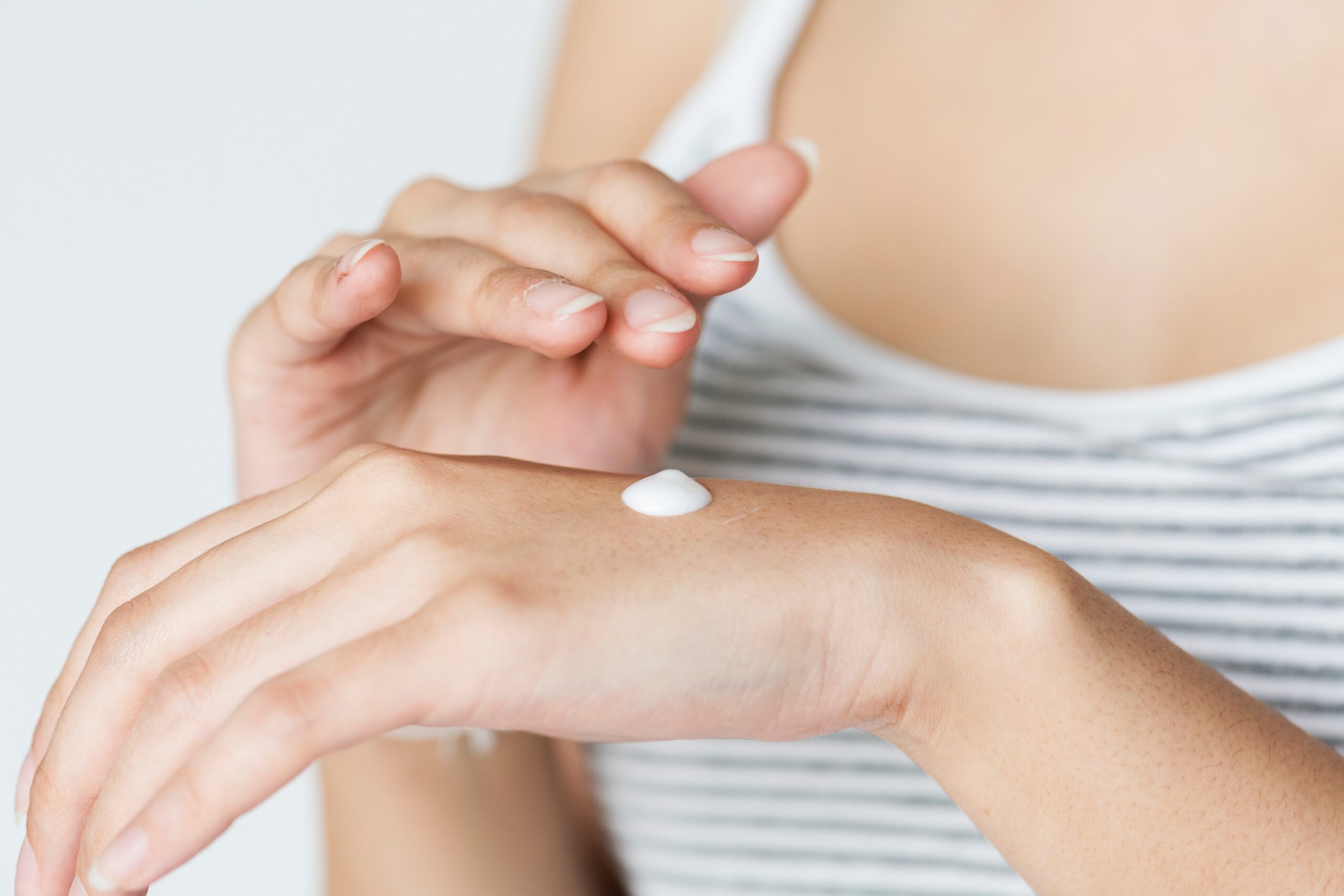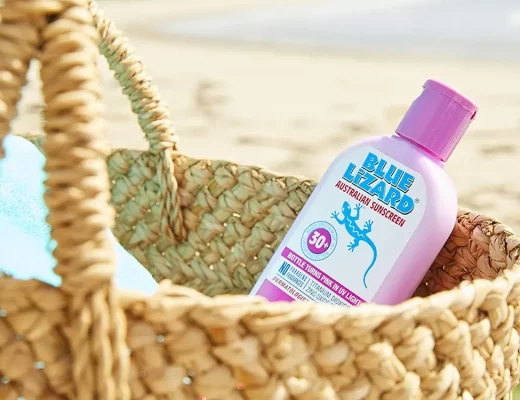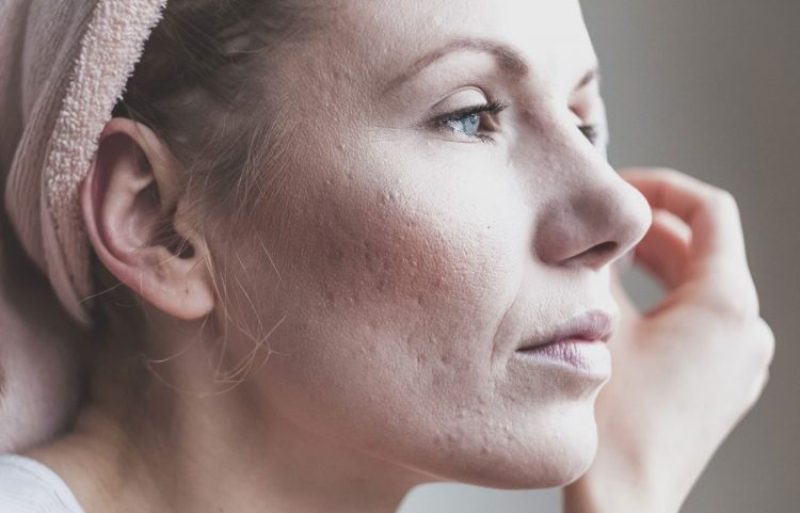Dealing with sensitive skin can be challenging, because your skin may get easily irritated when trying new or different cosmetic lines. However, skin care products like Mediheal are purposefully designed for sensitive skin and have been scientifically tested and proven to help soothe and moisturize sensitive skin.
What sensitive skin looks like

There are many misconceptions about having sensitive skin. A whole range of skin conditions such as dryness, itchiness, redness or flaking may indicate sensitive skin. However, these skin conditions may be caused by other things such as pollutants, hormonal imbalances, or environmental factors that cause these reactions, but do not indicate having truly sensitive skin.
The easiest way to determine whether you have sensitive skin is by either doing a pressure and product patch test. The first way to know if you have sensitive skin is by applying light to medium pressure by pressing down a few fingers on your cheek for a few seconds before releasing. If your skin turns red, then you have sensitive skin.
The second way to determine if you have sensitive skin is by doing a product patch test. When buying a new skincare product, do a patch test by applying a small amount of the product on your skin, preferably on your wrist or inside arms. If you experience a slight sting or tingling sensation when first applying it, then it is a clear sign that you have sensitive skin.
Causes of sensitive skin

Having a weak skin barrier is the main reason for sensitive skin. Because the skin’s natural barrier is weak, nerve endings on the topmost skin layer become easily exposed to potential irritants, causing immediate skin reactions. Skin irritants may come from both external and internal factors, such as sun exposure, pollution, or unsuitable skincare products for external factors, and hormonal imbalances and lifestyle stress for internal factors. Regardless, nourishing your skin is paramount if you have sensitive skin.
Do’s for your skin

1.Do a skin test for new products
Although doing a skin test for every new skincare product is ideal, people with sensitive skin should make this necessary, not just something optional. Do a product patch test on your wrist or inner arm to see if you’ll have any reactions to the new product, or request a trial product from the salesperson. Explain that you have sensitive skin, and will need to try a product or a few days or a week to see if it suits you.
2.Keep your skin hydrated
A sensitive skin loses moisture easily, so make sure to generously apply hydrating creams, gels, or lotions on your skin regularly. Drink lots of water throughout the day as well.
3.Choose natural soothing ingredients
Look out for products containing natural and plant-based soothing ingredients, such as aloe vera, chamomile, seaweed extract, and rose oil. These botanical ingredients are rich in antioxidants for skin hydration and renewal. Choosing products with hyaluronic acid is also great since hyaluronic is a naturally occurring compound found in your skin responsible for maintaining your skin’s moisture levels.
4.Use sunscreen daily
Excessive sun exposure is damaging to sensitive skin, so it’s imperative to apply sunscreen daily to protect your skin from harmful rays. However, some sunscreens may contain other skin irritants. To be safe, only select sunscreens whose active ingredients are zinc oxide and titanium oxide, since they’re gentle on the skin.
5.Check with your dermatologist regularly
People with sensitive skin are prone to skin conditions like rosacea (excessive face reddening) and eczema. Regularly consulting with your dermatologist is recommended to properly treat and alleviate these skin problems.
Don’ts for your skin

1.Avoid using soap
You want to lock in as much skin moisture as possible, and using soap may counteract it. Because soap efficiently removes oils from the skin, it may be harsh for people with sensitive skin. Opt for shower gel and water-based cleansers instead.
2.Avoid potentially harsh products and ingredients
Stay clear of harsh, acidic ingredients like alcohol, citrus essences such as lemon extract, glycolic acid, vitamin C, and added fragrances. Acids are irritating to sensitive skin. Avoid exfoliants, microbeads, scrubs, and cleansing brushes too.
3.Don’t use the same product on your face and body
Your facial skin is more delicate than the rest of your body, especially if you have overall sensitive skin. Do not mix up products you use for your body with the ones you use for your face.
4.Don’t use too many products
Putting on a lot of skincare products, even if they’re nourishing or hydrating, may confuse your skin and lead to irritation. Keep it simple, and stick to the products that are mild on your skin. When you have sensitive skin, less is more and simplicity is key.
5.Avoid hot showers
Excessively hot water may melt and strip off your skin’s natural oils. Refrain from hot showers, and opt for lukewarm or cold baths instead to help seal in skin moisture.
Final Thoughts
Although having sensitive skin may require you to be careful and selective with skincare products, choosing wisely will help you find the right products to integrate in your Korean skincare routine.




